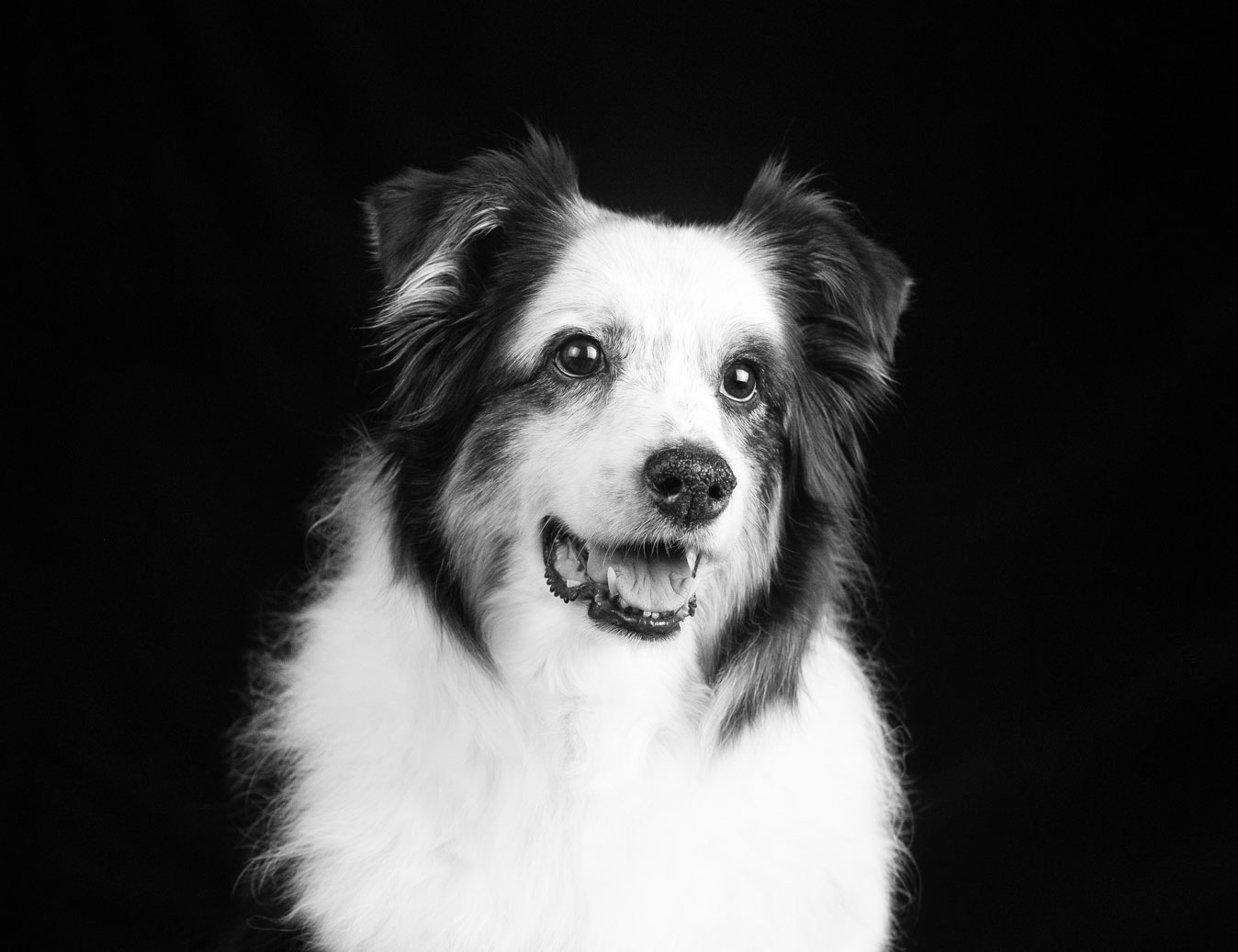Finding a Better Way for Zora

Dick Johnson can succinctly yet poignantly sum up how he and wife, Donna, feel about the treatment their dog, Zora, received at the NC State Veterinary Hospital: “We got three years instead of six months.”
Zora’s intelligent, piercing gaze now looks down upon the waiting room in the hospital’s radiation oncology service. The Portraits of Courage display features photographs of pets that have undergone treatment by the service’s dedicated medical team. The Johnsons knew that it was the perfect spot for their bright, sociable Australian shepherd.
Zora became part of the Johnson family as a puppy in 2009. She was born to a therapy dog, and when the Johnsons decided to take her home, the kennel owner cried.
Zora felt at home with the Johnsons right away; they were a happy threesome at their home on the shores of Lake Norman in Cornelius, N.C. She’d run right to their feet whenever they’d call. She liked other dogs, too. They took her everywhere. Donna Johnson called her the best dog in whole wide world. Zora meant everything to them.
“There were no strangers to Zora,” he said. “She liked to kiss everybody.”
Three years ago, Zora was exploring in a flower bed and ended up with a piece of bark lodged in her nose. She was having difficulty breathing, and the Johnsons took her to a local veterinarian’s office for help.
Zora had a cancerous nasal tumor. They were told that she could only survive another six months at the most.
The Johnsons began to search for the best way to help Zora. A friend of theirs, Nat Hyde, is a member of the North Carolina Veterinary Medical Foundation, which helps attract funding for the college’s educational, research and service missions. He urged the Johnsons to seek help from the nationally recognized hospital.
The Johnsons were referred to the radiation oncology service. Her medical team was led by Tracy Gieger and Michael Nolan, both associate professors of radiation oncology.
“I’ve never seen anywhere else that treated us like we were special from day one,” Dick Johnson said. “Dr. Gieger and Dr. Nolan put together an excellent program for us and everyone there loved Zora. They even took her with them when they went on their rounds.”
After careful evaluation, the decision was to carefully target the tumor with high doses of radiation — a process called stereotactic radiation therapy. Zora’s treatment plan reduced her tumor by two-thirds. By November 2017, there had been no new growth in 17 months.
[give url=”https://securelb.imodules.com/s/1209/giving/plain.aspx?sid=1209&gid=214&pgid=3813&cid=6343″ headline=”Support Animal Health” subheadline=”Your gift supports compassionate care for all animals and hands-on learning for vet students.” ]
Zora tolerated her treatment well and remained healthy until last December 2018. She died in January, far beyond the initial six-month diagnosis.
“We didn’t meet anyone we didn’t like,” Dick Johnson said of the hospital. “We were dealt with like we were part of the family. They’re so caring. I don’t know if we could have gotten that kind of treatment anywhere else.”
To show their appreciation, the Johnsons made a contribution of $25,000 to the college’s Radiation Oncology Research Fund, which supports the effort to advance the science of cancer treatment. Dick Johnson said he and his wife simply felt the need to do something to support the work of the college. “And when we are asked, we like to give something back,” he says.
“We’ve been fortunate,” he adds. “You can trust that the staff at NC State will give your pet the greatest care possible. We appreciate everything they’ve done.”
~Steve Volstad/NC State Veterinary Medicine
- Categories:


